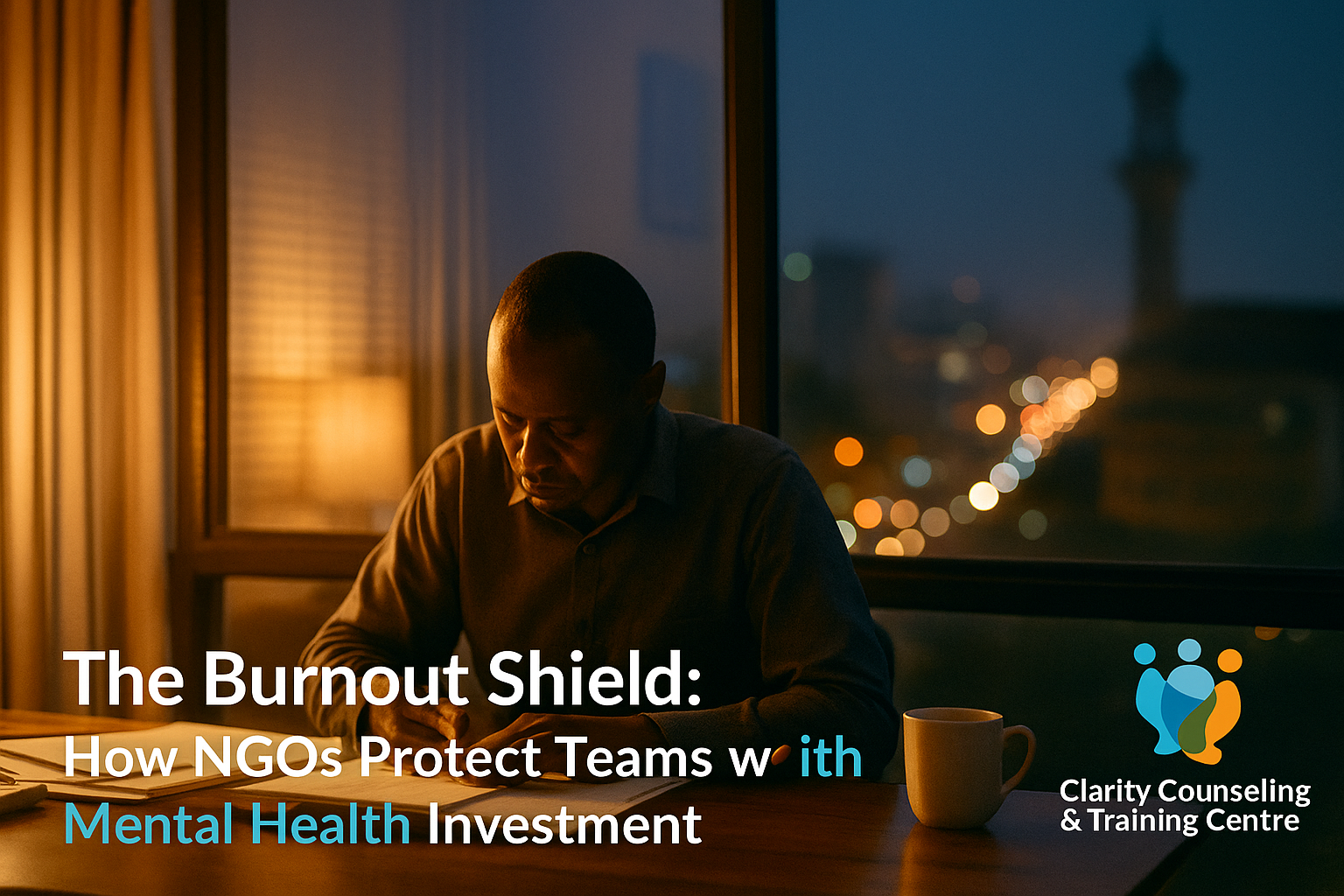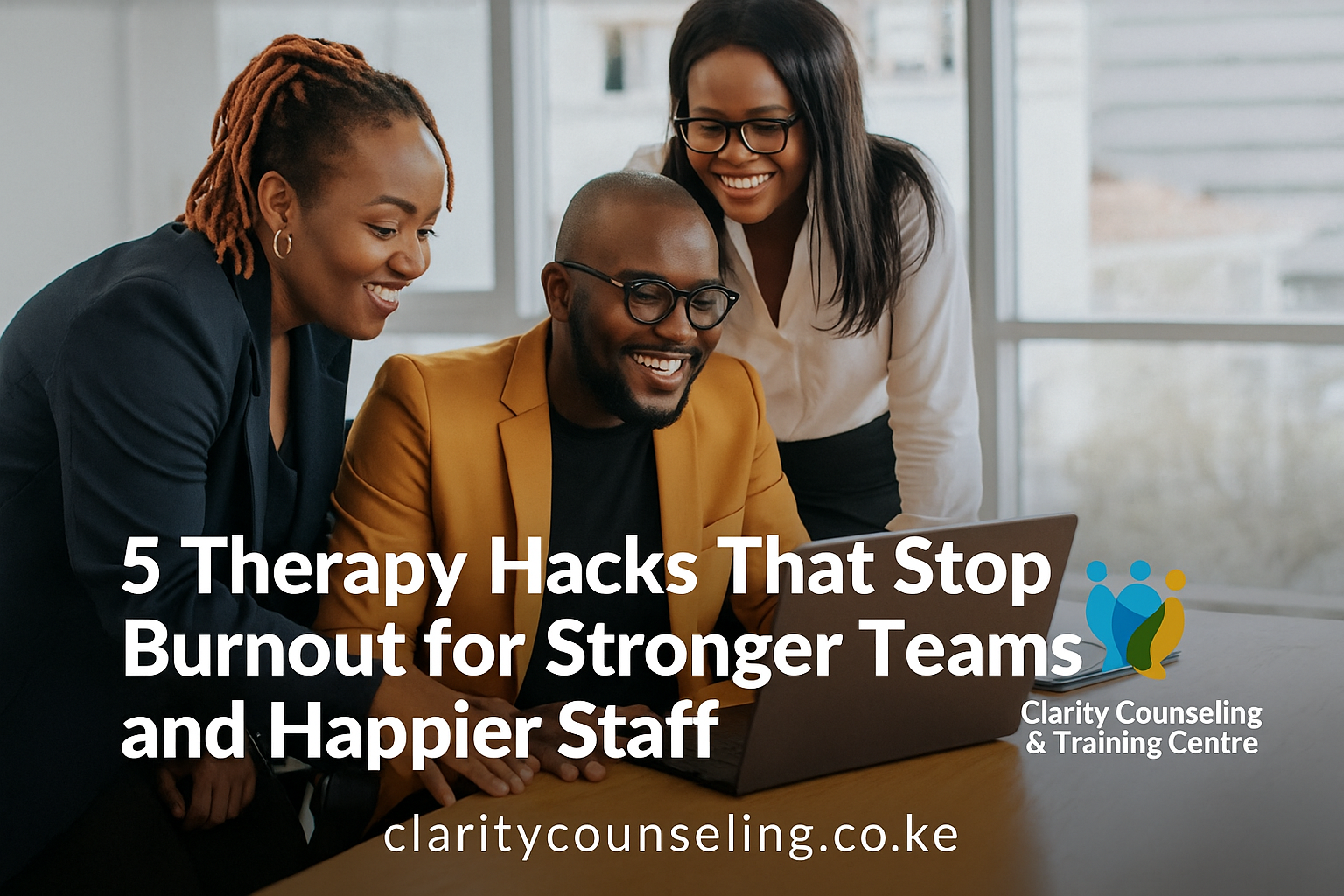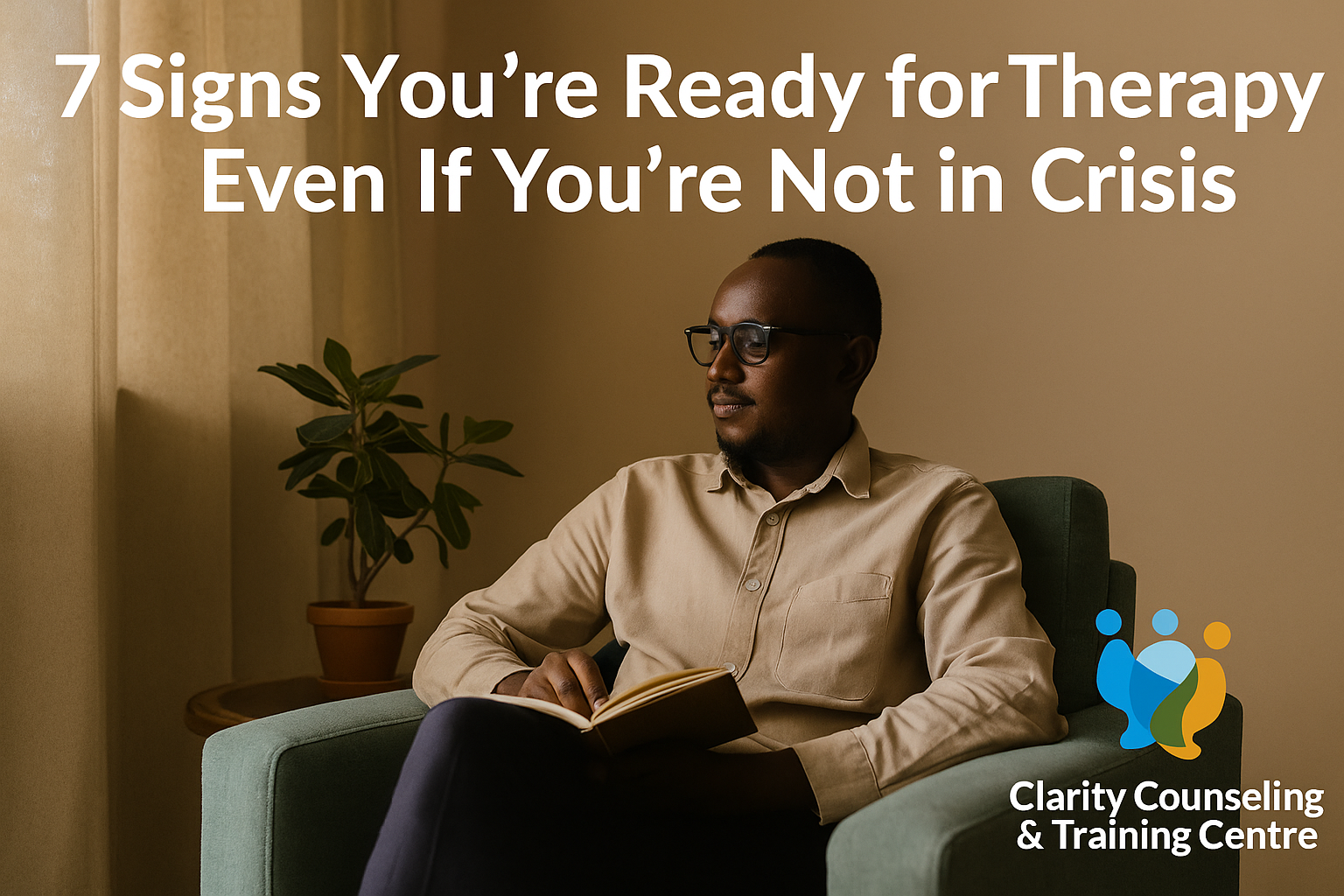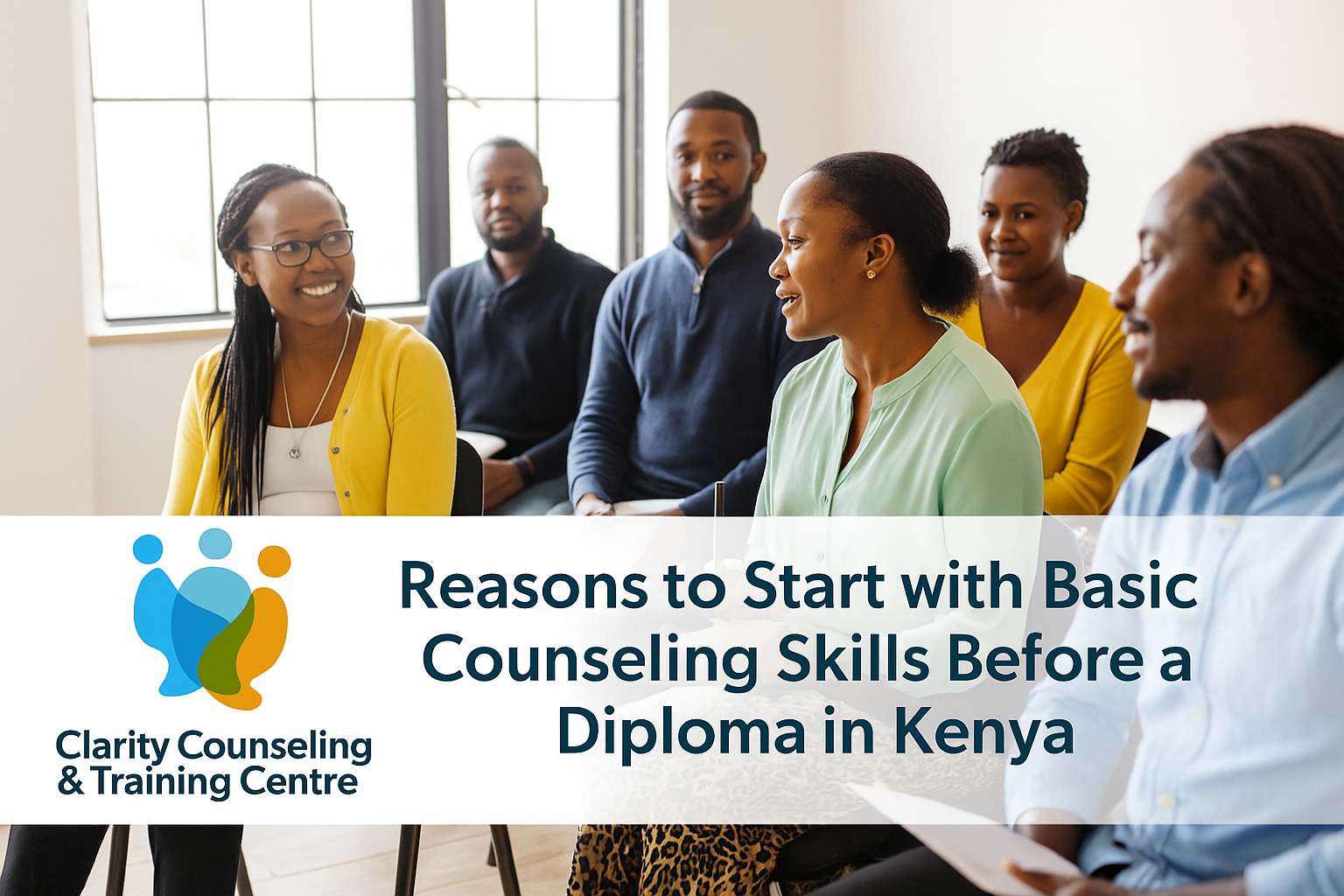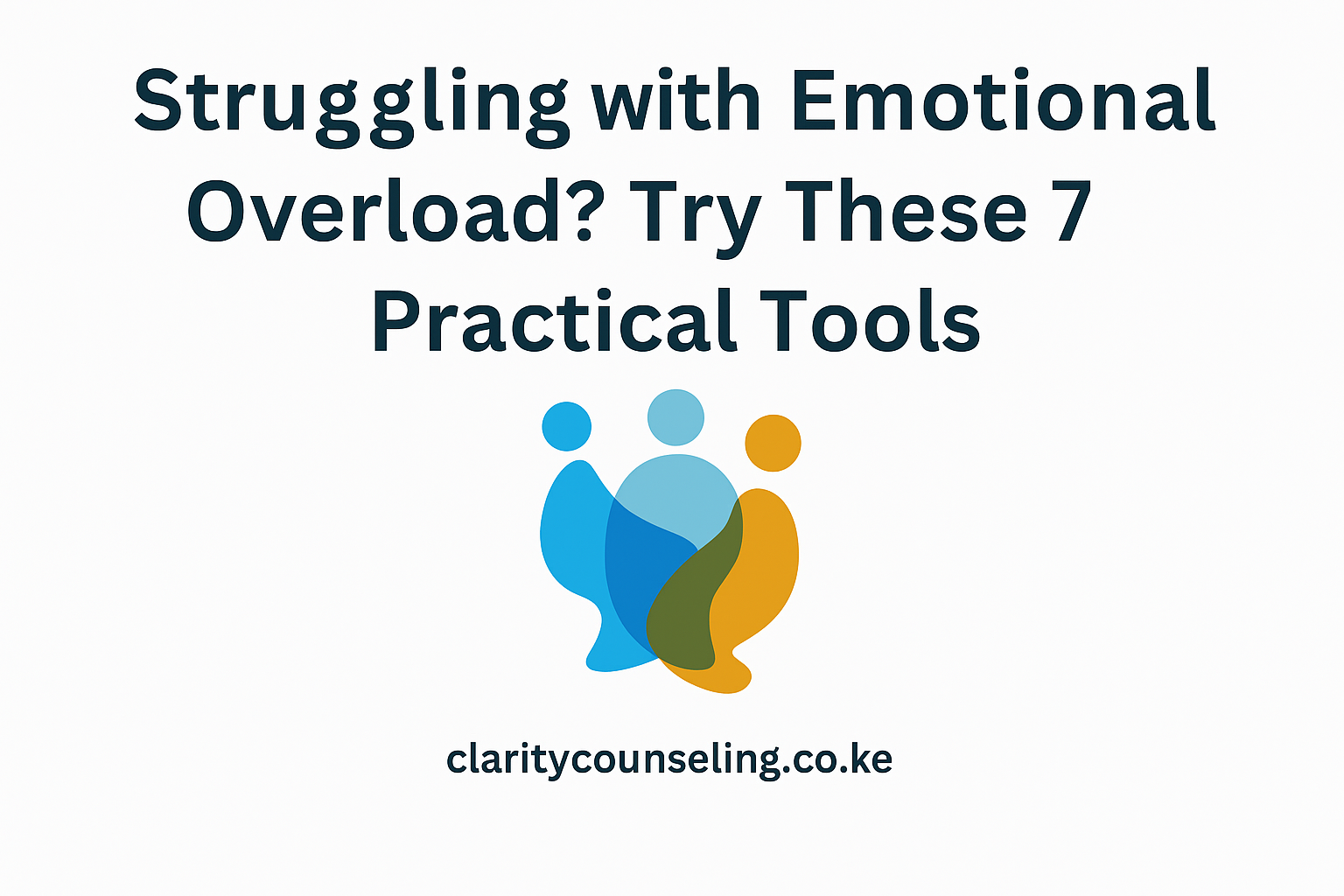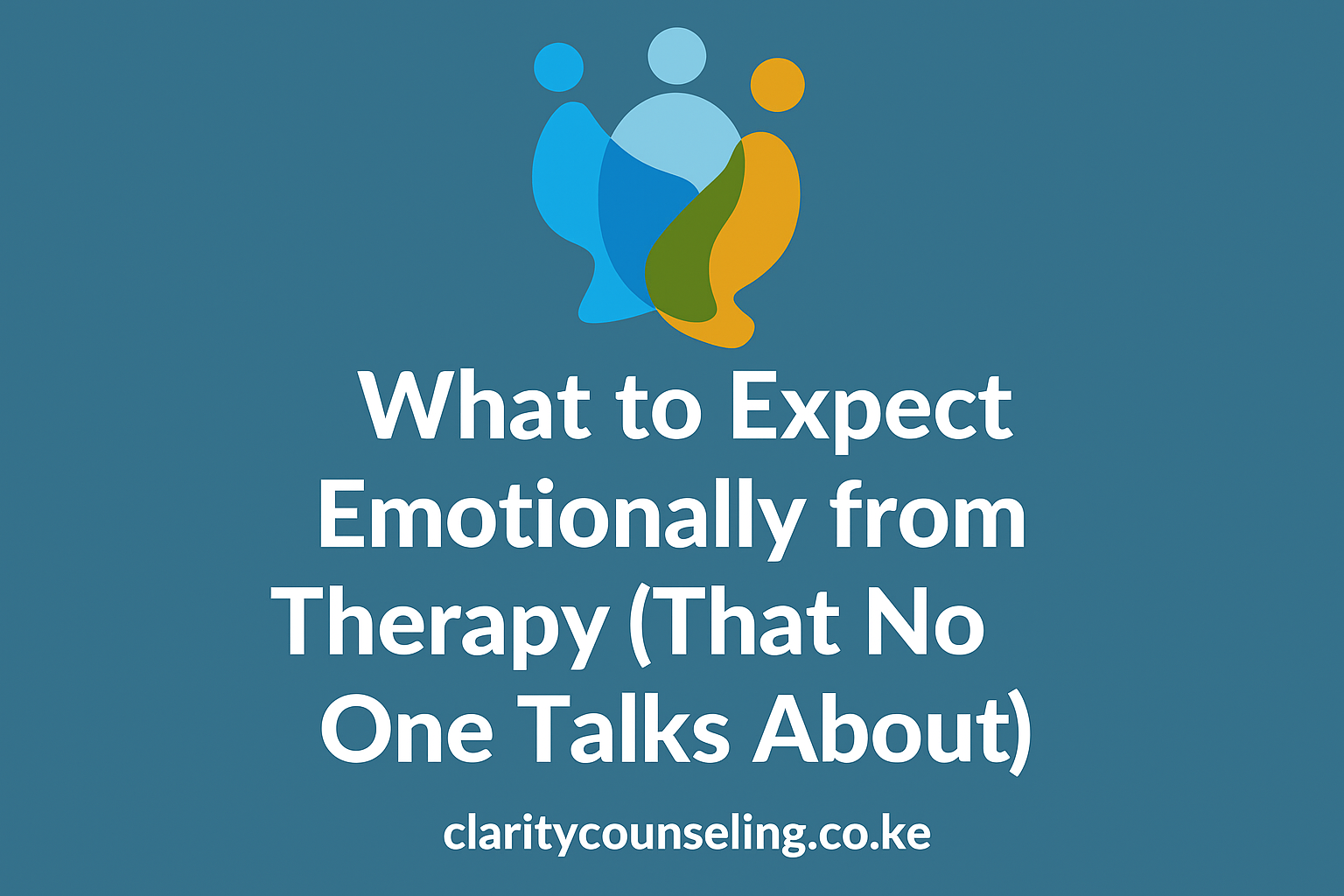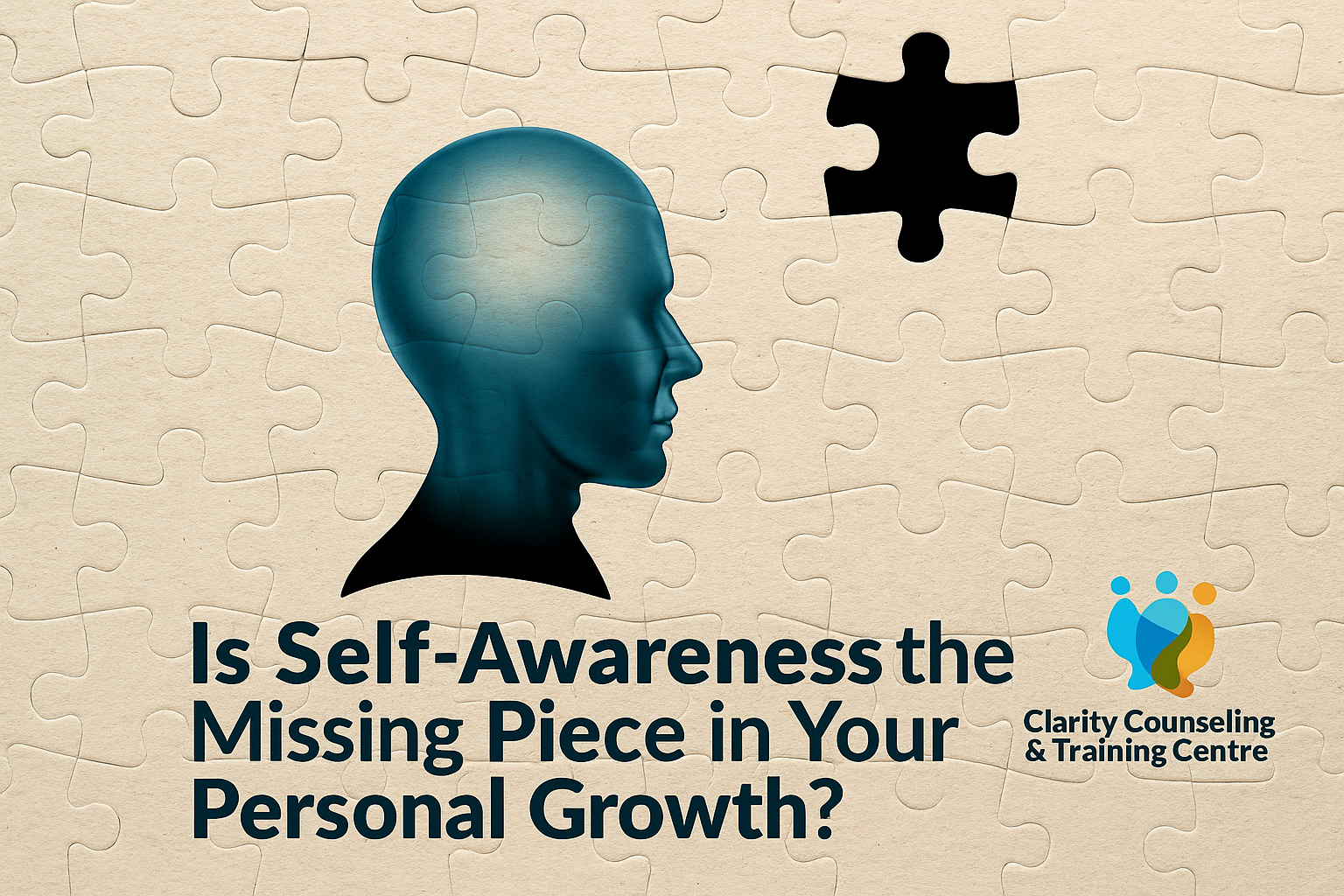Ready to Heal? How to Break Free from Childhood Trauma with Love
“I thought trauma wasn’t real for me… until I discovered it was shaping everything. Therapy changed that.”
It’s a Monday morning in Nairobi, the city hums with its usual rhythm.
Boda bodas weave through traffic, vendors shouting over one another, and professionals in crisp suits hurry into glass office towers.
Among them is a young banker who seems to have it all together: polished red heels, a sharp black blazer, a corner office with a skyline view. But when she finally sits down in the counseling room, the façade cracks.
“I keep telling myself I should be over it,” she whispers. “It happened so long ago. But every time my boss raises his voice, I feel like I’m ten years old again, waiting to be punished.”
Her words might sound familiar.
Because childhood trauma doesn’t always look like visible scars. Sometimes it looks like a teacher smiling in class while fighting a lump in her throat. A HR manager holding his team together while secretly bracing for rejection. A church leader preaching about hope while carrying silent dread.
It sneaks into your body in ways you don’t expect, shoulders tight from bracing, a heart that races at harmless conflict, sleepless nights replaying old memories you thought you buried.
You tell yourself, “I should be over this by now.”
But the past has a way of sneaking into the present.
Here’s what you need to hear: You are not weak.
You are not broken.
You are human. And healing is possible.
That’s where therapy in Kenya steps in, helping professionals, parents, and leaders finally break free from childhood trauma and build a life they truly love.
The Invisible Weight of Childhood Trauma

The World Health Organization estimates that more than half of adults experienced at least one traumatic event before age eighteen. In Kenya, UNICEF reports that violence, neglect, and emotional abuse remain alarmingly common in homes and schools.
But trauma doesn’t disappear when childhood ends. It follows you into adulthood, disguised as habits, fears, and emotional triggers:
- At work: perfectionism, burnout, constant fear of making mistakes.
- In relationships: choosing partners who echo the neglect or control you endured.
- Within yourself: feeling joy is out of reach, even when you “have everything.”
The costs are heavy. Careers stall. Families fracture. Faith feels distant. And yet, society often tells survivors: “Be grateful. Move on. Others had it worse.
That advice may silence the conversation, but it does not heal the wound.
Can Therapy in Kenya Help with Childhood Trauma?
Yes. But here’s the catch: it takes a lot of work (and time) and your own willingness to face the pain and discomfort for it to work.
Many professionals in Kenya try to outwork their trauma, hoping promotions or accolades will quiet the ache. Others bury themselves in prayer, routines, or “positive vibes only” affirmations.
But trauma isn’t just in your head. It’s embedded in your nervous system. That’s why the same patterns repeat, snapping at your kids, spiraling with anxiety before presentations, feeling numb in relationships.
It’s not a lack of willpower. It’s an unhealed wound. That’s why therapy in Kenya is life-changing. It gives you a safe, guided space to finally address the root, not just the symptoms.
A Better Way: The Healing Journey
Healing doesn’t mean erasing the past. It means finally giving pain the attention it deserved years ago, so it no longer controls your present. With therapy in Kenya, that journey often unfolds in five stages:
Step 1: Facing the Truth of Childhood Trauma
Denial whispers: “It wasn’t that bad.” But denial traps you with your pain. When the Nairobi banker finally admitted, “Yes, that was trauma,” she wept, not from weakness, but relief. Naming the wound allowed her to begin healing.
Step 2: Understanding How Childhood Trauma Shapes You
Perhaps you can’t say no without guilt. Maybe you overwork to feel worthy. Or you feel numb, waiting for joy to vanish. These aren’t flaws, they’re survival strategies. They once kept you safe. Now, they hold you back. Therapy helps you recognize them without shame.
Step 3: Grieving the Childhood You Deserved
Grief isn’t just about what happened, but what didn’t: the hugs never given, the safety never felt.
One client told us: “I thought crying would swallow me whole. But when I let myself grieve, I gave that little girl inside me permission to be seen.” Grief is hard, but it loosens trauma’s grip.
Step 4: Rewriting Your Story
Trauma whispers lies: “You’re not enough. You’ll always fail.” Therapy helps you reclaim the pen. You can’t change the first chapters, but you can decide how the rest unfolds: “I am worthy. I am loved. I am free.”
Step 5: Building New Patterns
Healing is also practical: learning to set boundaries at work, choosing healthier relationships, and practicing rituals that calm your body. With support, these new habits become the foundation of a freer life.
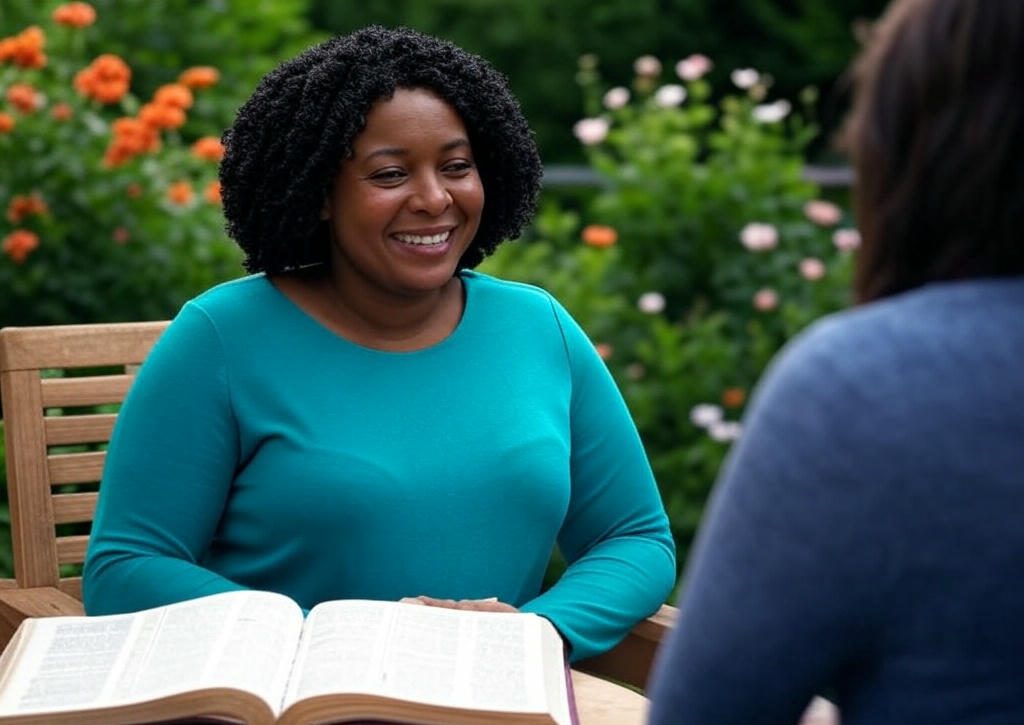
What Is the Best Therapy for Childhood Trauma in Kenya?
There’s no one-size-fits-all. The best approach depends on your story. But proven methods include:
- Trauma-focused counseling (talking through and processing experiences safely).
- CBT (Cognitive Behavioral Therapy) for reframing destructive thought patterns.
- EMDR Therapy which is trauma focused.
- Somatic therapies for releasing trauma stored in the body.
- Faith-sensitive counseling for those who want spiritual integration.
At Clarity Counseling Centre, sessions are tailored, whether you’re a teacher managing classroom stress, a medic avoiding burnout, or a Kenyan abroad juggling cultural pressures.
Sadly, many survivors tell themselves: “I’ve managed this long alone.” But surviving isn’t the same as living. Therapy offers what self-help can’t: a safe, consistent relationship where your pain is held, your patterns are understood, and your growth is nurtured.
Imagine…
- Waking up without dread.
- Leading at work without fear.
- Parenting with patience instead of pain.
- Laughing with family without that shadow in the background.
This is the gift of support through therapy in Kenya.
How Long Does Childhood Trauma Therapy Take?
Healing isn’t instant, it’s a journey. For some, progress shows in months. For others, it takes years of consistent work. But every session chips away at the old weight. The nightmares lessen. The shame quiets. Joy starts to feel less foreign.
Think of it less as a race, more as building a home. Every brick, each session, each breakthrough, creates a safer place to live within yourself.
Answering Common Doubts about Childhood Trauma
- Can You Fully Heal from Childhood Trauma?
Yes if we put our mind, heart and soul into it. Because unhealed trauma costs more: lost opportunities, broken relationships, burnout. Therapy is an investment in every part of your life.
- What about stigma?
Therapy in Kenya is becoming increasingly common among professionals, parents, and diaspora Kenyans. Seeking help is strength, not weakness. - What if it doesn’t work?
Healing isn’t linear. Progress may feel slow, but over time, life changes in ways you once thought impossible.
Healing doesn’t mean forgetting. It means transforming. You may always remember the past, but it no longer defines you. Many who once felt ruined discover a new purpose. As one Clarity Counseling client shared:
“I used to think my trauma broke me. Now I see it made me strong enough to love deeper than I ever imagined.” It’s like I gave myself healing and received joy and purpose.”
The ultimate goal isn’t just relief from pain, it’s rediscovering joy. It’s daring to dream again, resting without guilt, laughing without fear. And from that healed place, purpose blooms.
Survivors often become some of the most compassionate parents, leaders, and advocates.
Your pain doesn’t disqualify you. With healing, it can become the soil where empathy and strength grow.
A Living Testimony: My Own Healing Journey
When people hear of childhood trauma, they imagine it’s a foreign concept, something “Western.” I thought so too until I started my diploma course in Counselling Psychology. To my shock, I discovered that I was a victim of childhood trauma.
I had normalized behaviors like fiery temper and constant urgency, thinking they made me strong. In truth, they were scars from growing up with criticism, emotional neglect, and physical abuse. It shaped my relationships, my self-worth, even my faith.
Through therapy, self-awareness, and the help of God, I began to heal. It wasn’t overnight, years of damage take time but slowly the anger softened, the chaos quieted, and I discovered a new version of myself: freer, calmer, able to love deeply.
And here’s the truth: if it was possible for me, it’s possible for you too.
Your Story Isn’t Over, Let Therapy in Kenya help You Rewrite it
Childhood trauma may have shaped your beginning. But it doesn’t get to write your ending.
With therapy in Kenya, freedom is possible. Joy is possible. Healing is possible. The first step? Choosing not to carry this weight alone.
The question is, are you ready to take the brave step toward healing? Then book a session with Clarity Counseling Kenya today. Whether you’re a professional, parent, caregiver, or Kenyan abroad, this is your time to finally break free from childhood trauma and build a life you truly love.
